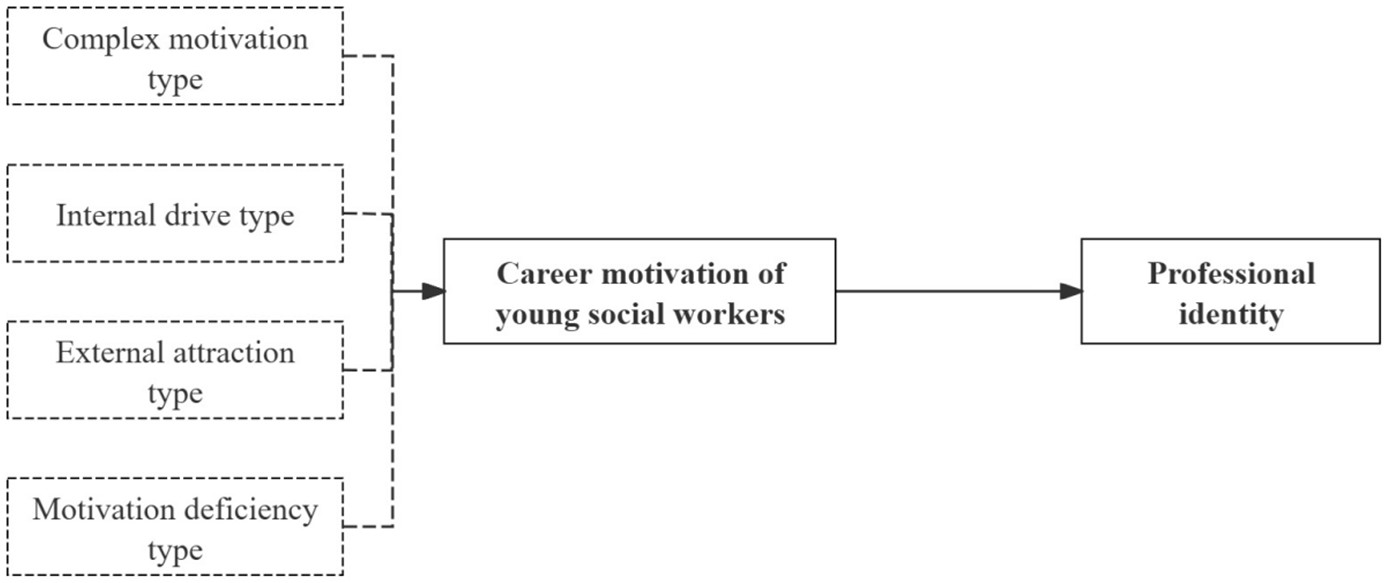A Study on the Relationship Between the Career Motivation and Professional Identity of Young Social Workers——An Empirical Investigation Based on Social Work Service Agencies in City Z, Guangdong Province
Abstract
Accurately grasping the employment motivation and professional identity of young social workers is of great significance for building a high - quality social worker team. According to the self - determination theory, the employment motivation of young social workers can be divided into four types: internal drive type, external attraction type, composite motivation type, and motivation - lack type. Through a questionnaire survey, combined with survey questions on employment motivation types and a professional identity scale, a survey was conducted on young social workers in social work service agencies in City Z, Guangdong Province. The research found that there is a correlation between different employment motivations and the professional identity of young social workers. Among them, young social workers of the motivation - lack type have relatively low professional identity, while those of the internal drive type, composite motivation type, and external attraction type show higher professional identity. Based on the research results, it is proposed that social work service agencies should give play to the leading role of young social workers of the composite motivation type, stimulate the internal enthusiasm of young social workers of the internal drive type, strengthen the external incentives for young social workers of the external attraction type, and guide the motivation exploration of young social workers of the motivation - lack type. While enhancing the professional identity of young social workers, a high - quality and high - efficiency young social worker team should be built.
References
[2] Chinese Government Network. (2017, April 13). The Central Committee of the Communist Party of China and the State Council issued the "Medium- and Long-Term Youth Development Plan (2016-2025)" [Press release]. http://www.gov.cn/zhengce/2017-04/13/content_5185555.htm
[3] Duan, Y., & Tang, X. L. (2016). A survey and analysis of the current status of career motivation and professional identity among full-time nursing students. Comprehensive Nursing, 14(21), 2247–2249.
[4] Fu, Z., & Ren, J. J. (2020). Representation and Endogeneity: The Relationship between Career Choice Motivation, Professional Identity, and Burnout among Young Social Workers: An Empirical Analysis of 220 Young Social Workers. In Comprehensive Construction of a Moderately Prosperous Society and Youth Development: Proceedings of the 16th China Youth Development Forum (pp. 323–342). School of Philosophy and Social Development, Northwest University of Political Science and Law.
[5] Li, M. K. (2017). Social work: an important vehicle for employment absorption. People's Forum, (4), 66–67.
[6] Li, M. J., Jiu, M., & Xie, H. X. (2015). An investigation into the relationship between career choice motives, occupational stress, and occupational identity among secondary school teachers: An empirical study based on the Tibet region. Journal of Inner Mongolia Normal University (Education Science Edition), 28(12), 74–77, 107.
[7] Li, Z., Bu, R., & Li, A. R. (2020). A study on the characteristics of professional identity among grassroots civil servants and its impact on work performance and turnover intention. Journal of Chongqing University (Social Sciences Edition), 26(3), 176–188.
[8] Li, Z., Zhang, X. J., & Liu, Q. (2021). A Study on the Relationship between Career Motivation and Career Identity among Young Civil Servants. Chongqing Social Sciences, (1), 88–100.
[9] McLean, L., Taylor, M., & Jimenez, M. (2019). Career choice motivations in teacher training as predictors of burnout and career optimism in the first year of teaching. Teaching and Teacher Education, 85, 204–214. https://doi.org/10.1016/j.tate.2019.06.020
[10] Ministry of Civil Affairs. (2022, August 26). 2021 Statistical Bulletin on the Development of Civil Affairs [Report]. https://www.mca.gov.cn/images3/www2017/file/202208/2021mzsyfztjgb.pdf
[11] Sheldon, K. M., & Corcoran, M. (2019). Comparing the current and long-term career motivations of artists and business-people: Is everyone intrinsic in the end?. Motivation and Emotion, 43(2), 218–231. https://doi.org/10.1007/s11031-018-9723-1
[12] Shen, R. H. (2011). Cultivating and developing a large social work talent team. Chinese Public Administration, (3), 17–19.
[13] Tong, Q. H., & Wen, T. L. (2023). Why come and why go: A study on the relationship between career choice motives and turnover intentions among young social workers. Journal of East China University of Science and Technology (Social Sciences Edition), 38(6), 59–70.
[14] Wang, X., Pang, L. M., & Liu, D. D. (2022). A study on the motivation and career development of young social workers. Journal of Changsha Civil Affairs Vocational and Technical College, 29(4), 40–44.


This work is licensed under a Creative Commons Attribution 4.0 International License.
Copyright for this article is retained by the author(s), with first publication rights granted to the journal.
This is an open-access article distributed under the terms and conditions of the Creative Commons Attribution license (http://creativecommons.org/licenses/by/4.0/).









1.png)














